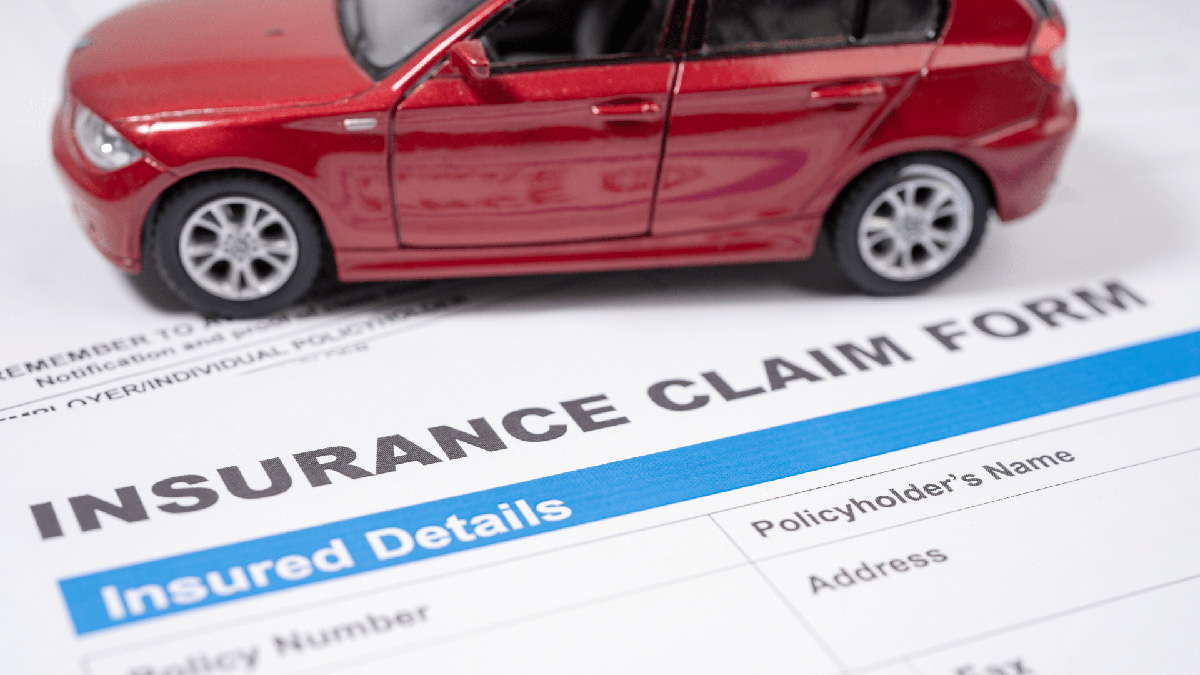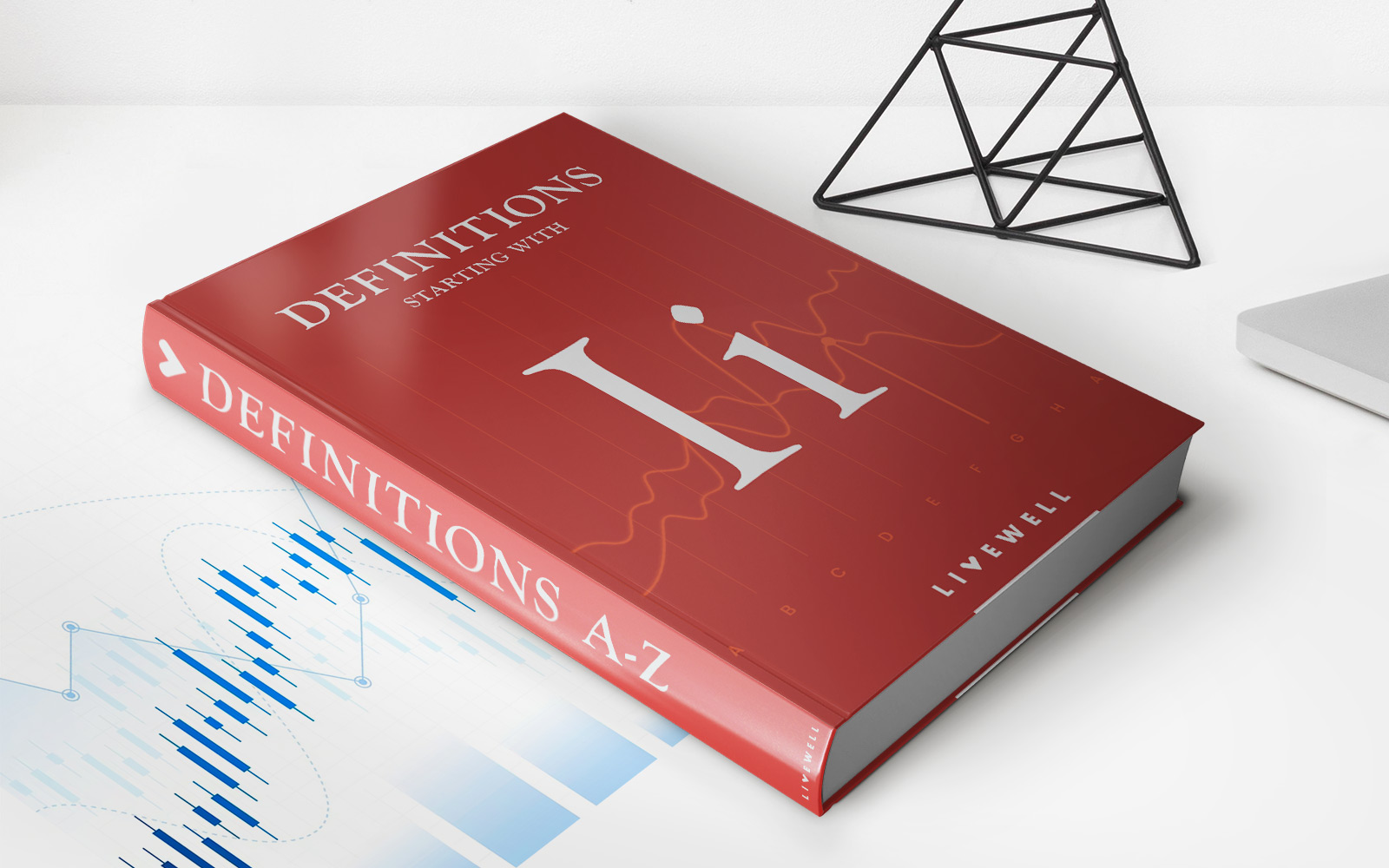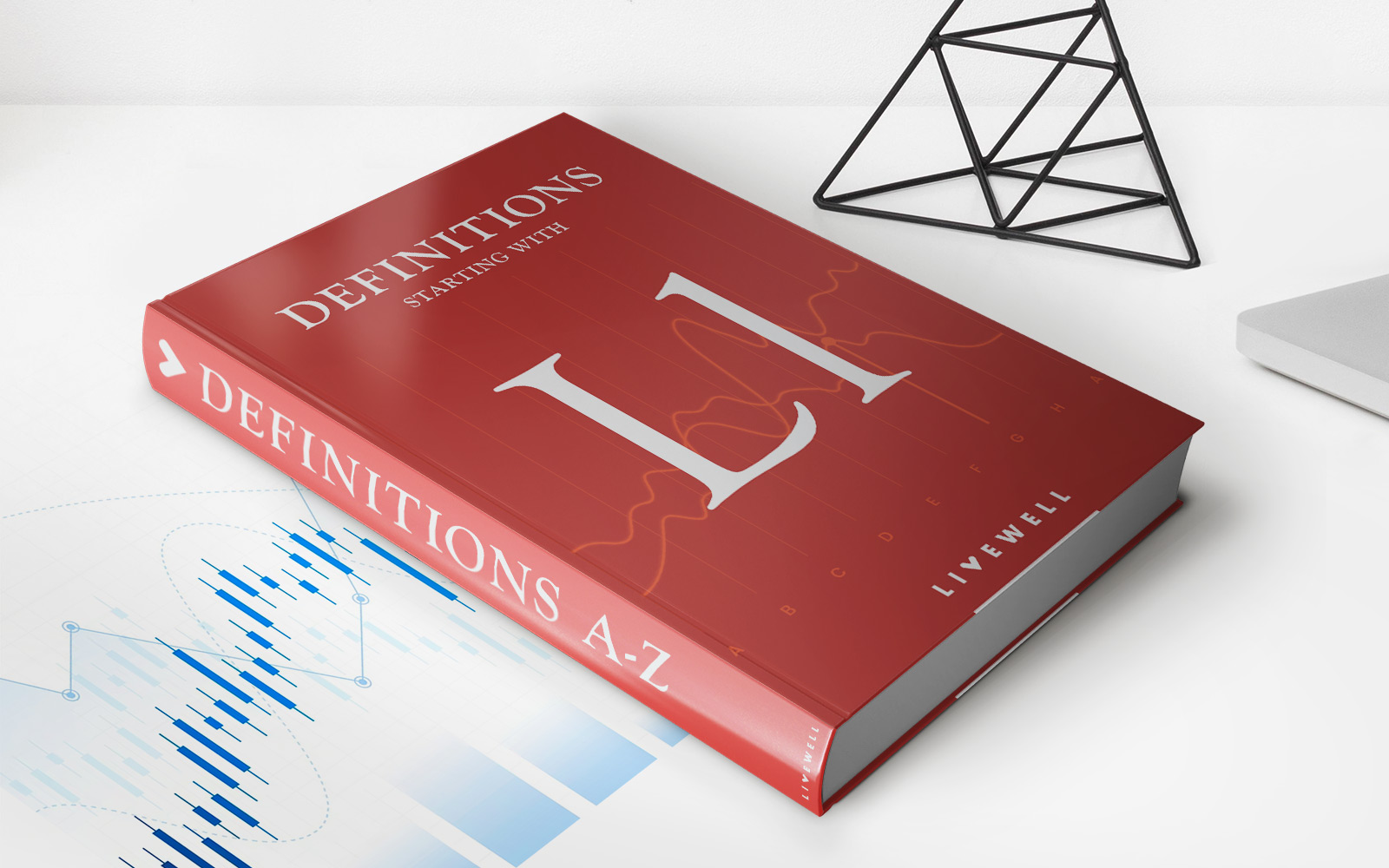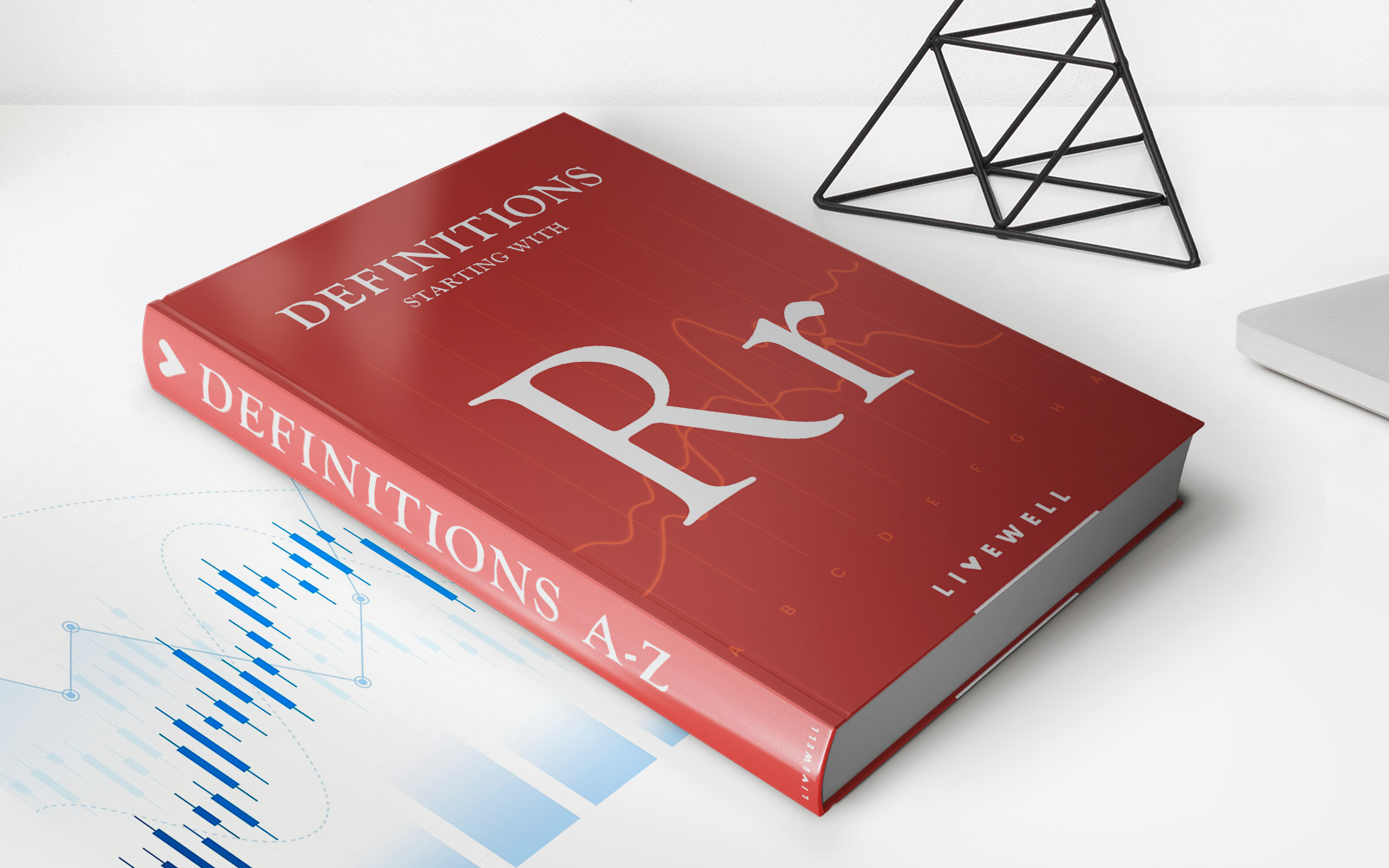

Finance
How Long To Keep Old Insurance Policies
Published: November 22, 2023
Looking for guidance on how long to keep old insurance policies? Our finance experts have the answers you need to manage your insurance effectively and declutter your financial records.
(Many of the links in this article redirect to a specific reviewed product. Your purchase of these products through affiliate links helps to generate commission for LiveWell, at no extra cost. Learn more)
Table of Contents
- Introduction
- Factors to Consider
- Life Insurance Policies
- Health Insurance Policies
- Auto Insurance Policies
- Homeowners Insurance Policies
- Renters Insurance Policies
- Umbrella Insurance Policies
- Personal Liability Insurance Policies
- Long-Term Care Insurance Policies
- Disability Insurance Policies
- Business Insurance Policies
- When to Dispose of Old Insurance Policies
- Conclusion
Introduction
Insurance policies play a crucial role in providing financial protection and peace of mind. Whether it’s life insurance, health insurance, auto insurance, or any other type of insurance, these policies safeguard us against unforeseen circumstances.
However, as time passes, it’s important to assess whether we still need to keep our old insurance policies. Holding on to outdated policies can clutter our financial records and potentially lead to confusion in case of a claim.
In this article, we will explore the factors to consider when deciding how long to keep old insurance policies. From life insurance to disability insurance and homeowners insurance to business insurance, we will delve into each type of policy and provide insights to help you make informed decisions.
It’s important to note that the duration for which you should keep old insurance policies can vary based on several factors, including the type of policy, your individual circumstances, and any legal obligations or requirements.
So, let’s dive into the details and guide you on how to determine how long to keep your old insurance policies.
Factors to Consider
Deciding how long to keep old insurance policies requires careful consideration of various factors. While there is no one-size-fits-all answer, here are a few key factors to keep in mind:
- Policy Coverage: Evaluate whether the coverage provided by the old policy is still relevant to your current needs. Over time, your insurance needs may change, and it’s essential to ensure that you have the appropriate coverage in place.
- Cost: Consider the cost of maintaining the policy. If the premium payments become a financial burden, it might be worth reassessing if the coverage is still necessary.
- New Policies or Updates: If you have obtained new policies or made updates to existing ones, it’s important to review your old policies. Consolidating multiple policies or updating coverage can help streamline your insurance portfolio and eliminate the need for certain old policies.
- Age and Health: With life insurance policies, your age and health play a significant role. If you are older and in good health, you may not need the same level of coverage that you did when you were younger. Assess your current financial situation and the needs of your dependents to determine if modifications or cancellations are necessary.
- Legal Requirements: Some insurance policies, such as auto insurance or homeowner’s insurance, may be mandatory by law. Make sure you are aware of any legal obligations in your jurisdiction before considering canceling or modifying these policies.
Remember, the decision to keep or let go of old insurance policies should be based on a careful evaluation of these factors. It’s always a good idea to consult with your insurance provider, who can provide specific guidance based on your unique circumstances and needs.
Life Insurance Policies
Life insurance policies are designed to provide a financial safety net for your loved ones in the event of your passing. When considering how long to keep old life insurance policies, there are a few important factors to consider:
- Dependents: Assess the financial needs of your dependents. If you no longer have dependents who rely on your income, or if they have become financially independent, you may not need as much life insurance coverage.
- Financial Stability: Consider your current financial situation. If you have accumulated enough wealth and assets to support your loved ones without relying solely on the life insurance payout, you may consider reducing or terminating your old life insurance policies.
- Premium Payments: Review the premium payments on your old life insurance policies. If the premiums have become burdensome or are no longer affordable, it may be time to reassess the need for the policy.
- Policy Benefits: Evaluate the policy benefits and features of your old life insurance policies. Compare them to newer policies in the market to ensure you have the most suitable coverage.
- Term Life Policies: Term life insurance policies have a specific coverage period. If the term has expired and you no longer need the coverage, it’s typically advisable to let go of the policy.
- Cash Value Policies: Cash value life insurance policies, such as whole life or universal life, can build up a cash value over time. Before canceling these policies, consider the surrender value and any tax consequences.
It’s important to carefully assess your needs and consult with a financial advisor or insurance specialist to determine the best course of action for your old life insurance policies. Remember that life insurance is a crucial component of financial planning, but it needs to align with your current circumstances and needs.
Health Insurance Policies
Health insurance is essential for protecting against the high costs of medical care. When deciding how long to keep old health insurance policies, consider the following factors:
- Employer Coverage: If you have employer-sponsored health insurance, evaluate the coverage provided. If your employer has made changes to the plan or if you have switched jobs and have new coverage, it may be time to let go of the old policy.
- Individual or Family Plans: Assess your current healthcare needs. If you have obtained a new individual or family health insurance plan that better suits your requirements, it might be time to consider canceling the old policy.
- Policy Benefits: Examine the benefits and coverage of your old health insurance policy. Compare them to newer options available in the market to ensure you have the most suitable coverage for your healthcare needs.
- Cost: Evaluate the cost of your old health insurance policy. Determine if the premiums, deductibles, co-pays, and out-of-pocket expenses are still reasonable and if you are getting the most value for your money.
- Coverage Gaps: Be mindful of any potential gaps in coverage when transitioning from an old health insurance policy to a new one. Ensure that there are no lapses in coverage and that you have continuous protection for any ongoing or upcoming medical needs.
- Mandatory Health Insurance: Consider any legal obligations or requirements pertaining to health insurance in your jurisdiction. Some countries or states have regulations that mandate individuals to maintain health insurance coverage, and non-compliance may result in penalties.
It’s important to carefully review your health insurance needs and consult with a healthcare professional or insurance advisor when making decisions about your old health insurance policies. Ensuring you have the right coverage in place will help protect your health and financial well-being.
Auto Insurance Policies
Auto insurance is a legal requirement in most jurisdictions and provides essential protection in case of accidents or damages to your vehicle. When deciding how long to keep old auto insurance policies, consider the following factors:
- Vehicle Value: Evaluate the value of your vehicle. If your car has significantly depreciated in value over time, it may not be necessary to maintain the same level of coverage as before. Adjusting the coverage or considering a new policy with lower premiums might be a viable option.
- Driving Habits: Assess your driving habits and any changes in your lifestyle. If you no longer drive as frequently or have switched to public transportation, you may consider reducing coverage or canceling an old auto insurance policy altogether.
- Bundling Options: Explore the possibility of bundling your auto insurance with other insurance policies, such as homeowners or renters insurance. Bundling can often lead to cost savings and provide more comprehensive coverage.
- Newer Policies: Compare the benefits and coverage of your old auto insurance policy with newer options in the market. Insurance companies frequently update their policies, offering additional features or better rates that may be more advantageous for you.
- Legal Requirements: Ensure that you comply with the legal requirements for auto insurance in your jurisdiction. Failing to maintain adequate coverage may result in fines or penalties.
When considering any changes to your auto insurance policies, it’s crucial to consult with your insurance provider or a knowledgeable insurance agent. They can help you navigate the complex world of auto insurance, ensuring that you have the appropriate coverage for your needs while maximizing affordability.
Homeowners Insurance Policies
Homeowners insurance is crucial for protecting one of your most valuable assets – your home. When deciding how long to keep old homeowners insurance policies, consider the following factors:
- Property Value: Evaluate the current value of your property. If your home has significantly appreciated in value over time or undergone significant renovations, it might be wise to review your homeowners insurance coverage to ensure it adequately protects your investment.
- Risks and Coverage: Assess the risks associated with your property and the coverage provided by your old homeowners insurance policy. Are there any gaps in coverage or new risks that need to be addressed? It’s important to have the right coverage to protect against potential hazards such as natural disasters, theft, or liability claims.
- Premiums and Deductibles: Review the cost of your old homeowners insurance policy. Compare it to newer policies to see if you can get more competitive rates or lower deductibles without compromising on coverage.
- Policy Enhancements: Consider whether your old policy includes any enhancements or add-ons that are no longer necessary or relevant. Removing these extras can help save on premiums while maintaining adequate coverage.
- Refinancing or Selling: If you are refinancing your home or planning to sell it, it’s essential to review your homeowners insurance policy. Lenders might have specific requirements, and if you are moving, you may need a different type of insurance coverage.
Remember, homeowners insurance is crucial for protecting your home and belongings. Consult with your insurance provider or a trusted insurance agent to ensure you have the right coverage tailored to your current needs and circumstances.
Renters Insurance Policies
Renters insurance is designed to protect your personal belongings and provide liability coverage while renting a property. When deciding how long to keep old renters insurance policies, consider the following factors:
- Current Living Situation: Assess your current living situation. If you have moved to a new rental property, it’s important to update your renters insurance policy to reflect the new address and any changes in your belongings or liability needs.
- Policy Coverage: Review the coverage provided by your old renters insurance policy. Ensure that it adequately protects your personal property against theft, damage, or loss and includes liability coverage for any accidents or injuries that might occur on the premises.
- Changes in Value: Evaluate any significant changes in the value of your belongings. If you have acquired valuable items or downsized your possessions over time, adjust your coverage accordingly to ensure that you are adequately protected.
- Premiums: Compare the premiums of your old renters insurance policy with newer options in the market. Rates can vary among insurance companies, so it’s worth getting quotes to see if you can secure a more affordable policy without compromising on coverage.
- Additional Coverage: Consider any additional coverage options that you might need. For example, if you work from home or own expensive electronics, you might want to add coverage for business equipment or specific high-value items.
When reviewing your renters insurance policy, consult with your insurance provider or an insurance professional to ensure that your coverage aligns with your current needs and provides adequate protection for your belongings and liability.
Umbrella Insurance Policies
Umbrella insurance policies provide an extra layer of liability coverage beyond the limits of your primary insurance policies, such as auto or homeowners insurance. When deciding how long to keep old umbrella insurance policies, consider these factors:
- Existing Coverage: Evaluate the limits of your existing insurance policies. If you have increased the coverage limits on your primary policies, you might reassess the need for an umbrella policy with higher liability limits.
- Lifestyle Changes: Assess any significant changes in your lifestyle that might affect your liability risks. For example, if you have downsized your property or made changes to your business structure, your liability exposures may have changed, and adjustments to your umbrella policy might be necessary.
- Changes in Assets: Consider any significant changes in your assets and net worth. If you have accumulated substantial wealth since obtaining your umbrella policy, you may want to review your coverage to ensure it aligns with your current financial situation.
- Legal Obligations: Research any legal obligations or requirements for holding umbrella insurance in your jurisdiction. Some professions or business entities may require umbrella coverage as part of their professional or legal obligations.
- Cost-Benefit Analysis: Compare the cost of your old umbrella insurance policy with the coverage it provides. If the premiums outweigh the potential benefits, it may be worth exploring other insurance options or adjusting the coverage limits.
Umbrella insurance is a valuable resource for additional liability protection, but it’s important to review the policy periodically to ensure it meets your needs and aligns with your current circumstances. Consulting with an insurance professional can provide valuable insights and guidance when making decisions about your umbrella insurance policy.
Personal Liability Insurance Policies
Personal liability insurance provides protection in case you are held legally responsible for causing harm to someone or damaging their property. When deciding how long to keep old personal liability insurance policies, consider the following factors:
- Current Coverage: Review the coverage provided by your old personal liability insurance policy. Ensure that it adequately protects you against potential liabilities and is in line with your current needs and circumstances.
- Occupation and Activities: Assess any changes in your occupation or activities that might impact your liability risks. For example, if you have switched careers, started a side business, or taken up a new hobby, verify if your old policy still offers sufficient coverage for these activities.
- Personal Assets: Consider the value of your personal assets and the potential financial impact of a liability claim. If your assets have significantly increased in value since obtaining the policy, it may be wise to reassess your liability coverage limits to adequately protect your assets.
- Cost vs. Coverage: Evaluate the cost of your old personal liability insurance policy in relation to the coverage it provides. Compare it to newer policies or options available in the market to determine if you can obtain better coverage or more affordable rates.
- Legal Requirements: Research any legal obligations or requirements for holding personal liability insurance in your jurisdiction. Some professions or activities may have specific liability insurance requirements that you need to meet.
Personal liability insurance is crucial for protecting your financial well-being in case of unforeseen liabilities. It’s important to periodically review your policy and consult with an insurance professional to ensure that your coverage meets your current needs and provides adequate protection.
Long-Term Care Insurance Policies
Long-term care insurance policies provide coverage for the cost of care in the event of a long-term illness, disability, or cognitive impairment. When deciding how long to keep old long-term care insurance policies, consider the following factors:
- Policy Benefits: Review the benefits and coverage provided by your old long-term care insurance policy. Evaluate if the policy aligns with your current long-term care needs and preferences.
- Age and Health: Consider your current age and health condition. If you already have a long-term care insurance policy in place and have developed health issues that might impact your eligibility for new coverage, it may be advantageous to keep your old policy.
- Cost of Premiums: Assess the affordability of your old long-term care insurance policy. Determine if the premiums have become a financial burden or if there are more cost-effective options available in the market.
- Policy Features: Evaluate the features and optional riders of your old long-term care insurance policy. Determine if any riders or enhancements are no longer necessary or if there are new options that better align with your coverage needs.
- Alternative Funding Sources: Consider alternative funding sources for long-term care, such as personal savings, investments, or government programs. If you have sufficient resources to cover potential long-term care expenses without relying solely on insurance, you may reassess the need for an old policy.
Deciding how long to keep long-term care insurance policies requires careful evaluation of your personal circumstances and preferences. It’s crucial to consult with an insurance professional or financial advisor who can help you navigate the complexities of long-term care planning and determine the best course of action for your specific needs.
Disability Insurance Policies
Disability insurance is designed to provide income protection in the event that you are unable to work due to a disability or illness. When deciding how long to keep old disability insurance policies, consider the following factors:
- Policy Coverage: Review the coverage provided by your old disability insurance policy. Assess if the policy aligns with your current income and financial needs in the event of a disability.
- Occupation and Income: Consider any changes in your occupation or income level. If you have switched careers or experienced a significant increase in income, you may need to reevaluate your disability coverage to ensure it adequately protects your earnings.
- Policy Definitions: Examine the policy definitions and terms of your old disability insurance policy. Determine if they still meet your current needs and if there are any limitations or exclusions that may warrant updating the policy.
- Cost of Premiums: Assess the affordability of your old disability insurance policy. Determine if the premiums have significantly increased or if there are more cost-effective options available in the market that provide similar or better coverage.
- Employer Coverage: If you have employer-sponsored disability insurance, review the terms and coverage. Determine if the employer-provided policy is sufficient or if supplementing it with an individual policy is necessary.
- Personal Financial Resources: Consider your personal financial resources and the extent to which you can sustain a loss of income. Assess if your savings, investments, or other financial assets can cover potential disability-related expenses without solely relying on insurance.
Deciding how long to keep disability insurance policies requires thoughtful consideration of your current financial situation and needs. Consulting with an insurance specialist or financial advisor can provide valuable insights and help you make informed decisions about your disability insurance coverage.
Business Insurance Policies
Business insurance policies are crucial for protecting your company against various risks and liabilities. When deciding how long to keep old business insurance policies, consider the following factors:
- Business Needs: Assess your current business needs and operations. Determine if your old business insurance policies still align with your industry, the size of your company, and the types of risks you face.
- Policy Coverage: Review the coverage provided by your old business insurance policies. Evaluate if the policies adequately protect your business assets, liabilities, and potential risks, such as property damage, liability claims, or loss of income.
- Changes in Business Structure: If there have been significant changes in your business structure, such as mergers, acquisitions, or expansion into new markets, reassess your insurance coverage to ensure it reflects the current state of your business.
- Policy Limit and Deductibles: Evaluate the policy limits and deductibles of your old business insurance policies. Determine if they are still appropriate for your business needs or if adjustments need to be made to ensure adequate coverage and manageable costs.
- Industry Changes: Be aware of any changes or emerging risks in your industry. Insurance needs can evolve over time due to technological advancements, regulatory changes, or other industry-specific factors. Stay informed and update your insurance coverage accordingly.
- Cost-Benefit Analysis: Consider the cost of your old business insurance policies in relation to the coverage they provide. Compare it to newer policies or options in the market to determine if you can obtain better coverage or more competitive rates.
It’s important to ensure that your business insurance coverage remains relevant and sufficient to protect your company’s assets and operations. Consulting with an insurance professional or risk management advisor can provide valuable insights to help you make informed decisions about your business insurance policies.
When to Dispose of Old Insurance Policies
Knowing when to dispose of old insurance policies can help you streamline your insurance portfolio and ensure that you have the most relevant and cost-effective coverage. While the specific timeline for each policy may vary, here are some general guidelines to consider:
- Policy Obsolescence: If your old insurance policies no longer align with your current needs or circumstances, it might be time to dispose of them. Insurance needs can change over time due to factors such as changes in lifestyle, assets, or legal obligations, so it’s essential to evaluate the relevance of each policy.
- Review Periodically: Regularly review your insurance policies to assess whether they still provide adequate coverage at a reasonable cost. As your circumstances change, your insurance needs may evolve, making it necessary to update or replace old policies to ensure you have the appropriate coverage.
- Cost-Benefit Analysis: Consider the cost-effectiveness of your old policies. Evaluate the premiums you are paying in relation to the coverage they provide. It’s worth exploring other insurance options and obtaining quotes to see if you can get better rates while maintaining the necessary coverage.
- New Policies: If you have obtained new insurance policies that encompass similar coverage as your old policies, it may be redundant to keep both. Consolidating your coverage with a single policy can simplify your insurance portfolio and potentially save you money.
- Replacement Policies: When obtaining a new policy, confirm that it adequately replaces the old policy before disposing of it. Ensure there are no coverage gaps during the transition and have the new policy in place before canceling the old one.
- Legal Obligations: Be mindful of any legal obligations or requirements regarding insurance coverage. Some types of insurance, such as auto insurance or homeowners insurance, may be mandatory by law. Make sure you comply with any legal obligations before disposing of these policies.
It’s important to carefully consider each insurance policy and how it fits into your overall insurance strategy. If you are unsure about whether to dispose of a particular policy, consult with your insurance provider or a trusted insurance professional who can offer guidance based on your unique circumstances.
Conclusion
Deciding how long to keep old insurance policies requires careful evaluation of various factors, including your current needs, policy coverage, cost, and legal obligations. While there is no one-size-fits-all answer, regularly reviewing and reassessing your insurance policies is essential to ensure they align with your evolving circumstances.
Whether it’s life insurance, health insurance, auto insurance, homeowners insurance, or any other type of insurance, it’s important to consider the relevance of each policy. As your life changes, so do your insurance needs, and holding on to outdated policies can be unnecessary and potentially costly.
Consulting with insurance providers, financial advisors, or insurance specialists can provide valuable insights and guidance when making decisions about your insurance policies. They can help you navigate through the intricacies of insurance coverage, assess the adequacy of your current policies, and explore new options that may better meet your needs.
Remember, the ultimate goal of insurance is to provide financial protection and peace of mind. Regularly evaluating and updating your insurance coverage ensures that you have the right protections in place, giving you the confidence to face unforeseen circumstances.
By considering factors such as policy relevance, cost-effectiveness, and legal obligations, you can make informed decisions about when to dispose of old insurance policies and optimize your insurance portfolio. Keeping a well-managed and up-to-date insurance portfolio will provide the best possible coverage while avoiding unnecessary clutter and expenses.














